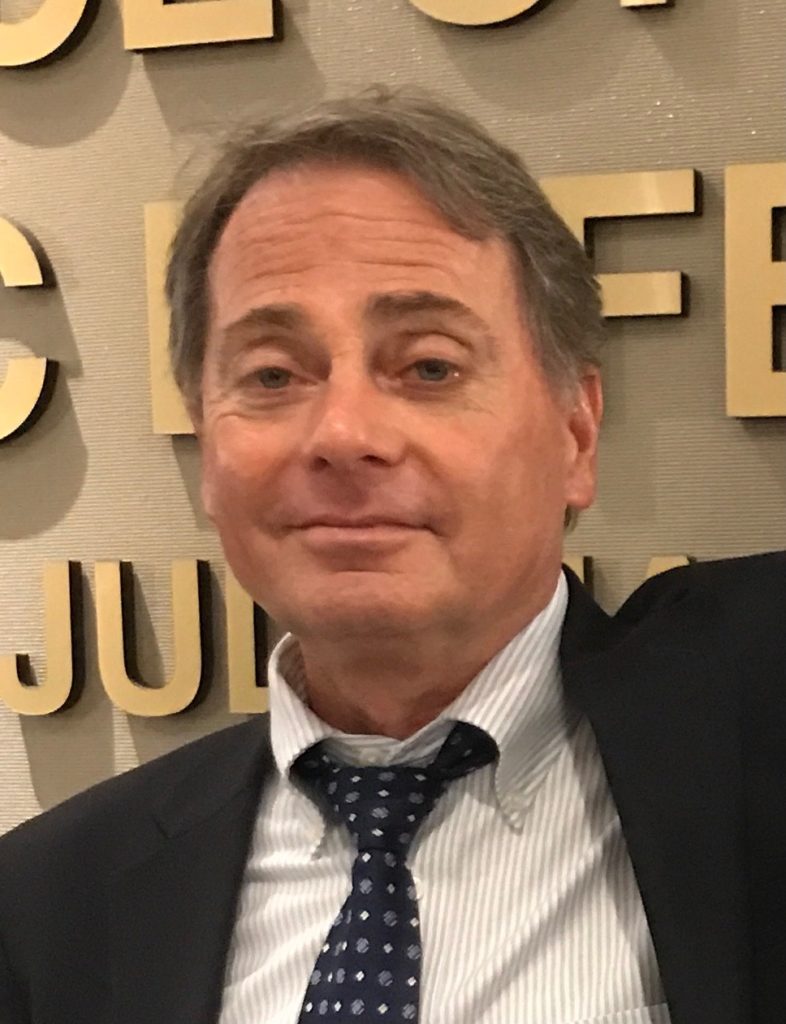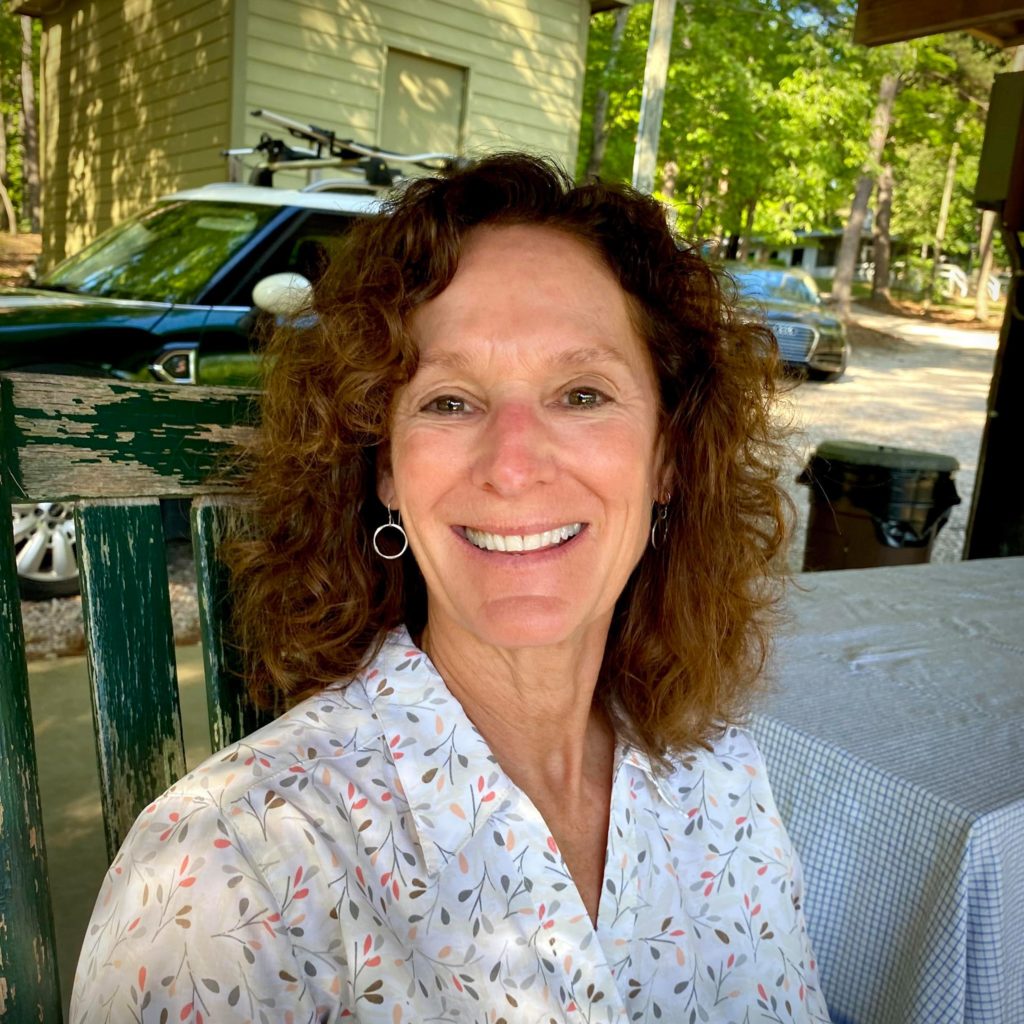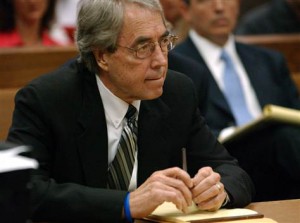CDPL is happy to honor Steve Freedman as the winner of the J. Kirk Osborn Award for outstanding leadership in capital defense. Last fall, because of the steep rise in Covid cases, we made the difficult decision to postpone the ceremony honoring Steve. It is now scheduled for April 2022. The rescheduled event will honor Steve. We will also celebrate longtime CDPL staff member Gerda Stein, with the Messenger of Hope Award for her extraordinary work as a mitigation investigator and communications specialist.
The in-person celebration will be April 14 from 6 to 8:30 p.m. in the outdoor courtyard at Parizade in Durham. Please register for the event here. Everyone who purchased tickets in the fall will be automatically signed up for our spring event. For those who are unable to come in person, we plan to record the awards portion and post it on our website. If you’d like to make a donation in honor of Steve or Gerda, you can do that here.
About Steve Freedman
Steve recently retired from the N.C. Office of the Capital Defender. All told, he spent 30 years as a public defender and worked several years as a staff attorney at CDPL. Steve has taken on the most difficult capital cases and persuaded juries to spare his clients’ lives. To cite just one example, in 2007, Steve represented Sam Cooper, who was accused in a Wake County crime spree that left five people dead. After a month-long trial in which Steve and his team presented compelling evidence of post-traumatic stress disorder that resulted from horrendous childhood abuse, the jury voted for five life sentences instead of death. And Steve’s career is far from over. Despite his retirement, he recently agreed to take a Richmond County capital case, and he continues to assist on the case of a former client facing the death penalty in Pasquotank County.
To understand why we chose Steve for this honor, read this nomination letter from fellow capital defender Robert Singagliese:
The epitome of leading by example
Over the course of his career, Steve has done more for poor people charged with capital murder than most any attorney in the state.
Steve has been an excellent advocate at the trial level for his entire career for poor people charged with serious felonies. He has been a public defender in Columbus, OH; Cumberland County, NC; Orange County, NC; and the Eastern District of NC in the federal system. He also spent a number of years at CDPL. Finally, he has spent about 15 years at the Office of the Capital Defender in Durham, where we worked together. He has tried eight capital trials, only one of which resulted in a death sentence. While not a very vocal member of the bar, I believe Steve is the epitome of leading by example.
In my four and a half years at OCD, I have had the incredible opportunity to work with Steve on three capital cases. (We also tried a non-capital case together that thrillingly resulted in an acquittal.) His care for his clients is obvious. In his earliest meetings with his clients, he lets them know that our job is going to be to learn everything we can about them, so that by the time a case has reached its conclusion we know more about our clients than they do. That is a fine explanation of mitigation work. That introduction also lets our clients know from the beginning that the case is not about the lawyers, and it’s not about the crime. Our work is about them.
The last of the three capital cases I mentioned ended just recently. In that case, our client cared less about his life than we did. (Indeed, he told the judge at his sentencing hearing that he was dissatisfied with his lawyers because we delayed the case and prevented him from getting the death penalty.) While capital trial work is always demanding and frustrating, it was even harder with a client who refused to cooperate with his defense team. Yet, Steve didn’t give up, and with some creative litigation and a lot of patience, we were able to maneuver the case into a posture that allowed it to be resolved without a capital trial.
As for teamwork, it’s obvious that Steve is the “first chair” in essentially any setting in which he finds himself. Yet he doesn’t make the other members of his team feel that way. He encourages participation from fellow attorneys, investigators, and experts. I’ve also seen him switch his own gears and focus based on the input of others, a sign that he’s not just being polite about a team approach. He sincerely appreciates that every member of the team has something to contribute.
I have also watched Steve work with several junior members of the capital defense community, including myself. I owe much of what I have learned since joining this office to Steve. I have no doubt that other lawyers have had a similar experience.
Finally, a short anecdote. Two years ago, Steve tried a non-capital murder case in Durham. The State never made a plea offer, and the facts were not good for Steve’s client. Steve’s defense brought forward evidence of legitimate mental health issues, including intellectual disability, Bipolar disorder, and intoxication. Before sitting down at the end of his closing argument, knowing that the State would have last argument, Steve choked up a bit and asked the members of the jury for someone to be his client’s advocate in the jury room. He asked for someone to stand up for D’Marlo, because Steve wasn’t going to be allowed to stand up again. It was clear how much Steve cared about his client. What more could a client ask for?
About Gerda Stein
In January 2022, one of North Carolina’s most dedicated advocates, Gerda Stein, left her long-time post as Director of Public Information at CDPL. Here, Executive Director Gretchen M. Engel pays tribute to a colleague and friend who left an indelible mark on our movement — and whose kindness touched many people who faced execution:
On the hard days and the joyful ones, Gerda was there
This is not a eulogy.
That said, it is with deep sadness that I mourn, after 30 incredible years of service, Gerda Stein’s departure from CDPL later this month.
I met Gerda in the fall of 1991, when I was law student interning at Ferguson Stein. Gerda had just been hired as a mitigation investigator at the NC Resource Center. I had no idea then that Gerda would become one of my dearest friends and colleagues.
In the early 1990s, many men and women received the death penalty from juries who knew little about their lives. Gerda changed that. She worked with the UNC school for social work, organized trainings, consulted with capital defense teams and, through perseverance and patience, institutionalized the practice of mitigation investigation in capital cases in our state. (Gerda would be the first to point out that she was not the only one involved in these efforts. Of course she was integral to these efforts. And, besides, this piece is about Gerda.)
Gerda was also a practicing model for new recruits. She comforted Henry McCollum through years of depression before he was exonerated in 2014. Her empathy for Norris Taylor, a desperately abused and mentally ill man, was legendary. When he died of natural causes in 2006, the prison didn’t know any family members to call. So they called Gerda. Gerda was the mitigation investigator and later a member of the successful clemency delegation for Robert Bacon and, when Robert was dying, his sister likewise contacted Gerda.
The work was demanding and emotionally exhausting. Our clients’ childhoods are so often horrifying and the daily exposure to stories of degradation and violence is corrosive. Eliciting those stories and then helping to present them to jurors is hard even when you win. And in the 1990s, we often lost.
Gerda took a brief hiatus from CDPL sometime in the late 1990s. It’s hard to remember now, because it feels to me like she was always there: She was there the nights my clients Harvey Green and Quentin Jones were executed. Along with his attorneys and daughter, Gerda was with Dawud Abdullah Muhammad the night he was executed. Between 1992 and 2006, nearly 40 times, at two o’clock in the morning, Gerda was there.
In 2000, Gerda came back to CDPL to take on a new challenge, telling the stories she knew so well to the public at large. This was shortly after the national backlash to Benetton’s “We, on Death Row” ad campaign, and becoming CDPL’s public education director was no small challenge. Back then, lawyers for people facing the death penalty were loath to speak to the press because their stories invariably and exclusively focused on the gory crime facts and suffering of people who’d lost a loved one to murder. And the execution machine was burning at full throttle: in just over four months in the fall of 2003, North Carolina executed seven men.
Gerda brought her compassion, work ethic, fearlessness, and vision to the task and, over the years, media coverage of capital cases has dramatically changed. First there was the series in the Charlotte Observer exposing the under-resourced state of capital defense and the endemic racism in our cases. Later the News & Observer ran a series on prosecutorial misconduct and wrongful convictions in death penalty cases.
In clemency campaign after clemency campaign, Gerda worked with defense teams to expose injustices in individual cases. Among many hard losses, Gerda was there to see the Colosseum in Rome lit up after Governor Hunt granted clemency to Wendell Flowers, to see Tim Allen and Pat Jennings sentenced to life after they’d each spent two decades on death row, and she was there to see Alan Gell and Henry McCollum walk free after years of wrongful incarceration. And she’s been here to see 15 years with no executions, 15 more years of life for Blanche and Dan and Phil and Priscilla, and so many others.
Because our names both start with a hard “G,” I’ve often been called Gerda over the years – although never “Girla,” Norris Taylor’s pet name for Ms. Stein. For years after we made a trip to Washington D.C. to investigate Tim Allen’s case, I would explain on the phone to Tim’s family members, “I’m Gretchen. No, the pregnant woman was Gerda. I’m the other one.” How flattering it’s been to be confused with the most dedicated and powerful advocate and kindest human being I know.
The J. Kirk Osborn Award
J. Kirk Osborn was one of the giants of the capital defense community. Kirk defended more than a dozen capital cases and never had a client sentenced to death. His advocacy and deep compassion for his clients saved many lives, and inspired other attorneys to follow in his footsteps. Each year, the Center for Death Penalty Litigation honors Kirk’s legacy by presenting the J. Kirk Osborn Award for lifelong zealous advocacy, compassion for indigent men and women facing the death penalty, and leadership among capital defense attorneys.



